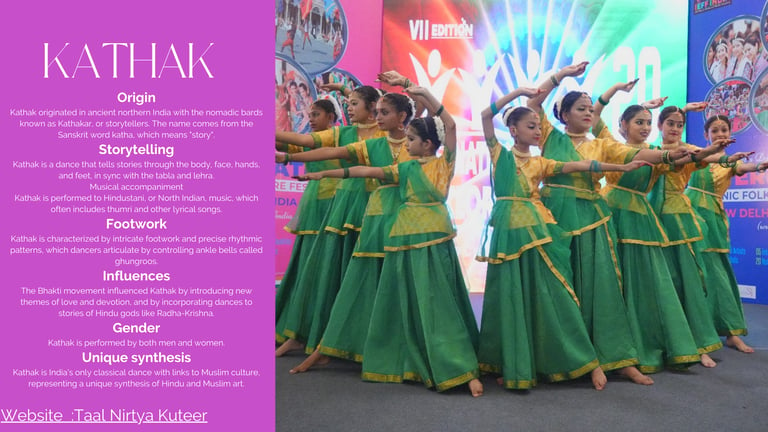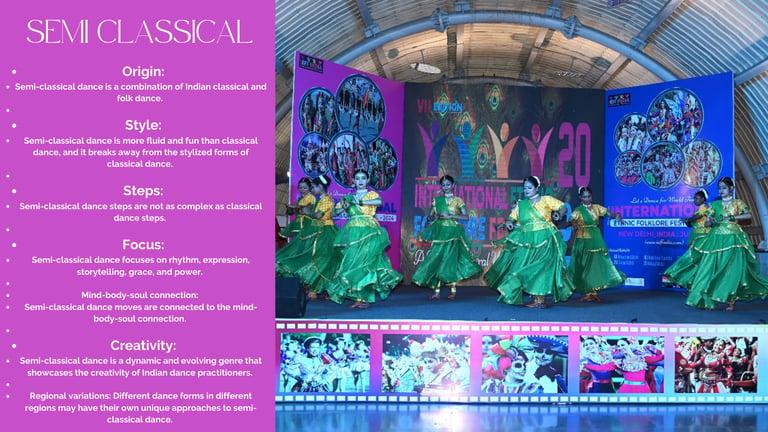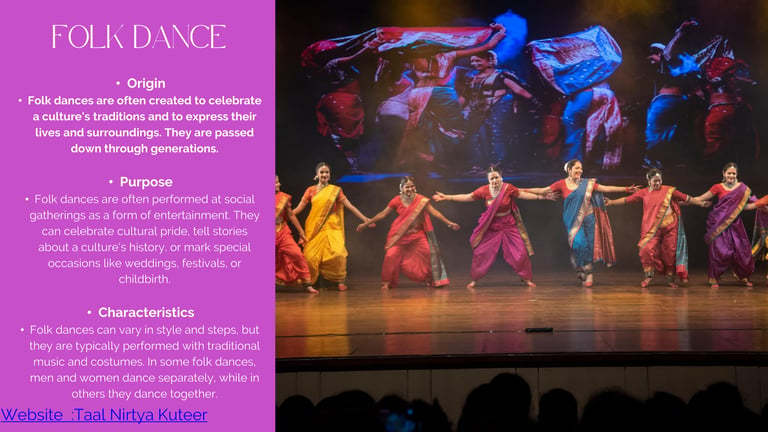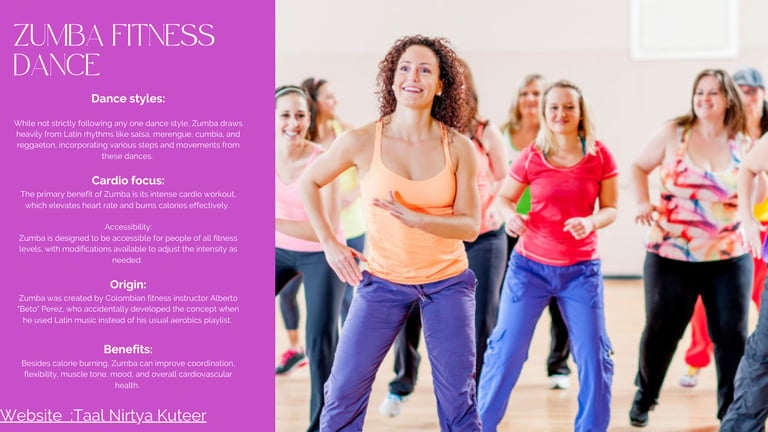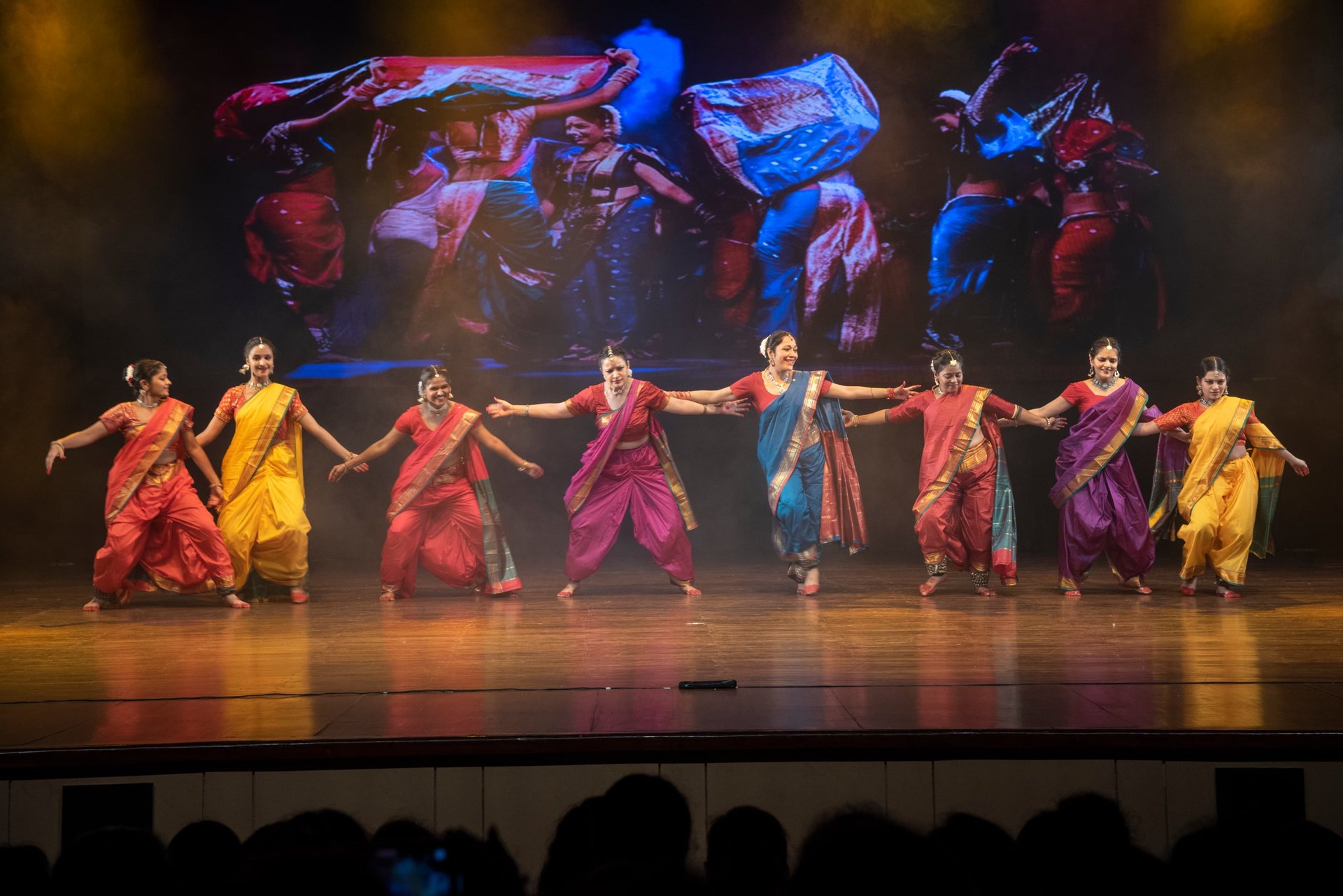
Dance Classes Offered
Explore our diverse dance classes including Kathak, Bollywood, Zumba, and semi-folk styles.


Kathak Dance Classes
Learn the classical art of Kathak with our experienced instructors and vibrant sessions.
Bollywood Dance Classes
Join our energetic Bollywood dance classes and express yourself through lively choreography.
Zumba Fitness Classes
Get fit and have fun with our Zumba fitness classes designed for all levels.
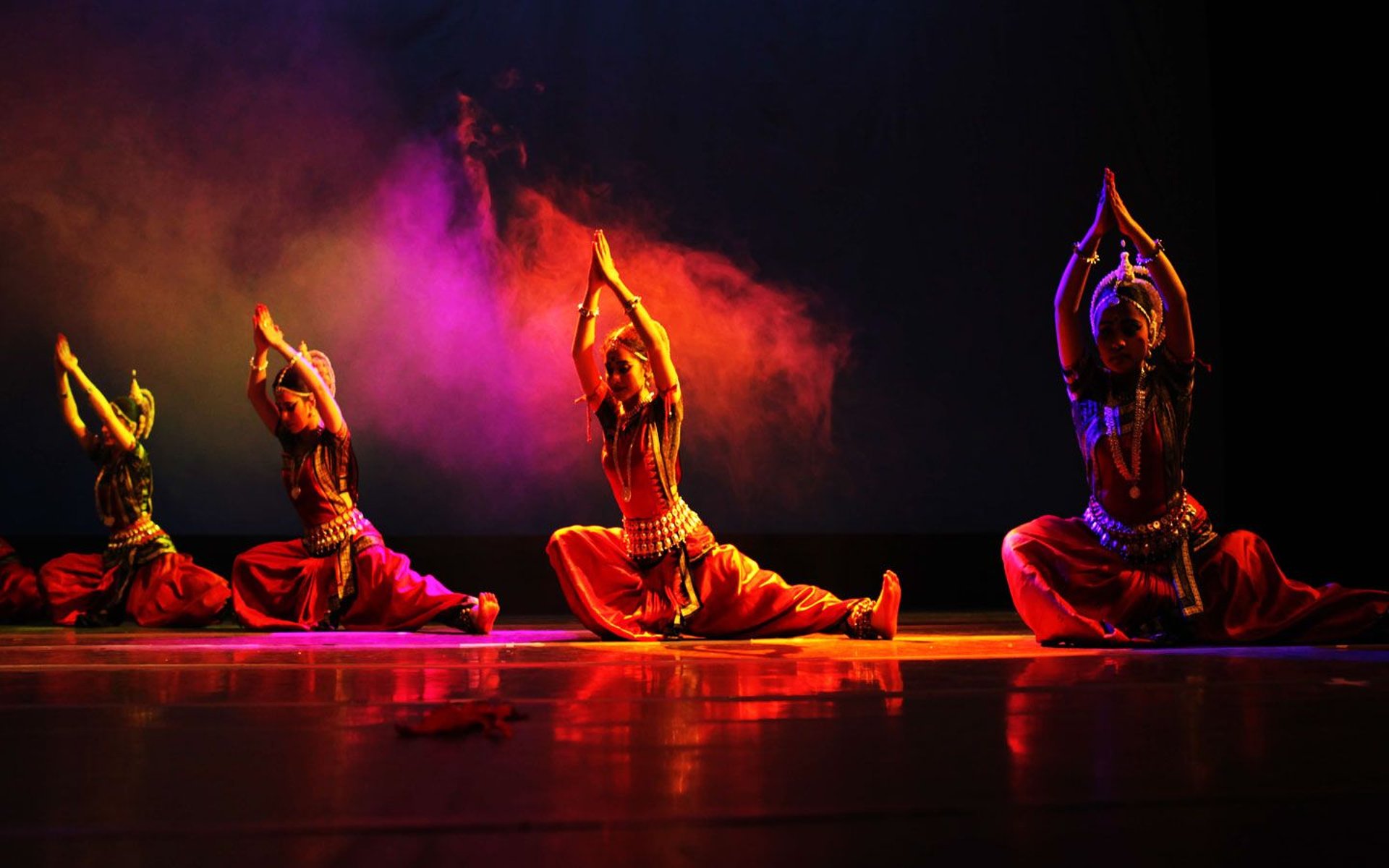

The slideshow of Google reviews was impressive and helped me choose the best service for my needs.
John D.


I loved the Google review slideshow! It made finding reliable services so much easier and faster.
Sarah K.

★★★★★
★★★★★
Customer Reviews
See what our students say about their dance experience with us.
Taal Nirtya Kuteer transformed my dancing skills. Highly recommend this academy!
Anjali Sharma
Mumbai
The classes are engaging and fun! I’ve learned so much about dance here.
Ravi Kumar
Delhi

